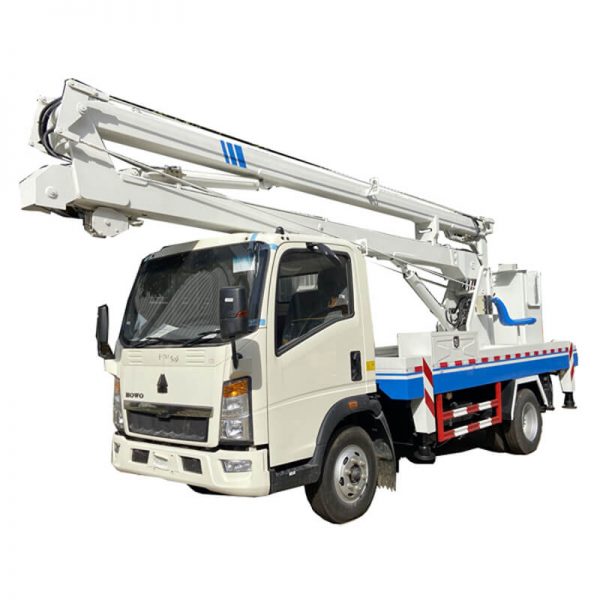Klein Richmond
0 Course Enrolled • 0 Course CompletedBiography
Managing Hazardous Waste with Garbage Compactor Trucks
Introduction
Hazardous waste poses a significant threat to human health and the environment if not managed properly. One effective way to handle hazardous waste is through the use of garbage compactor trucks. These specialized vehicles are designed to collect, compact, and transport hazardous waste materials to designated disposal sites. In this article, we will explore the importance of garbage compactor trucks in managing hazardous waste, their features and functions, as well as their impact on environmental sustainability.
Importance of Garbage Compactor Trucks for Hazardous Waste Management
Hazardous waste is any waste material that poses a substantial threat to human health or the environment due to its chemical, biological, or physical properties. Examples of hazardous waste include toxic chemicals, heavy metals, radioactive materials, and infectious substances. Improper disposal of hazardous waste can lead to contamination of soil, water, and air, resulting in serious health risks and environmental damage.
Garbage compactor trucks play a crucial role in the proper management of hazardous waste by providing a safe and efficient means of collection and transportation. These specialized vehicles are equipped with sealed containers or compartments to prevent leakage or spillage of hazardous materials during transit. The compactors inside the trucks compress the waste, reducing its volume and minimizing the risk of exposure to harmful substances.
Features and Functions of Garbage Compactor Trucks
Garbage compactor trucks come in various sizes and configurations to cater to different types of hazardous waste and collection requirements. Some common features and functions of garbage compactor trucks include:
1. Sealed Containers: Garbage compactor trucks are equipped with sealed containers or compartments to contain hazardous waste securely. These containers are designed to prevent leakage and spillage, reducing the risk of environmental contamination.
2. Compaction Mechanism: The compaction mechanism inside the truck compresses the waste, allowing for more waste to be collected and transported in each trip. This not only increases efficiency but also reduces the frequency of trips required for waste disposal.
3. Hazardous Waste Compatibility: Garbage compactor trucks are designed to handle a wide range of hazardous waste materials, including liquids, solids, and gases. Specialized compartments and storage tanks are used to safely transport different types of hazardous waste without mixing or cross-contamination.
4. Leak Detection Systems: Many modern garbage compactor trucks are equipped with leak detection systems to monitor for any signs of leaks or spills during transit. These systems provide early warning alerts to the operators, allowing them to take immediate action to prevent environmental hazards.
5. GPS Tracking and Monitoring: Some garbage compactor trucks are equipped with GPS tracking and monitoring systems to provide real-time location data and route optimization. This helps improve operational efficiency and ensures timely collection and disposal of hazardous waste.
Impact on Environmental Sustainability
The use of garbage compactor trucks for hazardous waste management has a positive impact on environmental sustainability in several ways:
1. Pollution Prevention: Garbage compactor trucks help prevent pollution by securely containing hazardous waste and minimizing the risk of accidental spills or leaks. This reduces the potential for soil, water, and air contamination, protecting ecosystems and human health.
2. Resource Efficiency: By compacting hazardous waste and optimizing collection routes, garbage compactor trucks improve resource efficiency by reducing fuel consumption and vehicle emissions. This contributes to lower carbon footprints and overall environmental impact.
3. Compliance with Regulations: Garbage compactor trucks are designed and operated in compliance with local, national, and international regulations governing the handling and disposal of hazardous waste. By using https://www.heli-truck.com/howo-12ton-reefer-van-truck-2/ specialized vehicles, waste management companies can ensure adherence to legal requirements and environmental standards.
4. Emergency Response Capability: In the event of hazardous waste spills or accidents, garbage compactor trucks can be mobilized quickly to contain and clean up the waste, minimizing the spread of contamination and mitigating environmental damage. Their versatility and mobility make them valuable assets in emergency response situations.
Case Studies and Best Practices
Several municipalities, waste management companies, and industrial facilities around the world have successfully implemented garbage compactor trucks for hazardous waste management. One notable case study is the city of Singapore, which has a comprehensive waste management system that includes the use of advanced garbage compactor trucks for hazardous waste collection and disposal.

In Singapore, garbage compactor trucks equipped with state-of-the-art technology and safety features are deployed to handle hazardous waste generated by industries, healthcare facilities, and research institutions. These trucks follow strict protocols for waste segregation, containment, and transportation to ensure compliance with environmental regulations and public health standards.
Another best practice is the collaboration between waste management companies and local communities to raise awareness about the proper disposal of hazardous waste. Public education campaigns, community engagement initiatives, and outreach programs play a vital role in promoting responsible waste management practices and encouraging the use of garbage compactor trucks for hazardous waste collection.
Conclusion
Garbage compactor trucks are indispensable tools for managing hazardous waste effectively and sustainably. By providing a safe and efficient means of collection, compaction, and transportation, these specialized vehicles help prevent pollution, conserve resources, and ensure compliance with environmental regulations. The use of garbage compactor trucks for hazardous waste management represents a critical step towards building a more sustainable and resilient waste management infrastructure globally.
